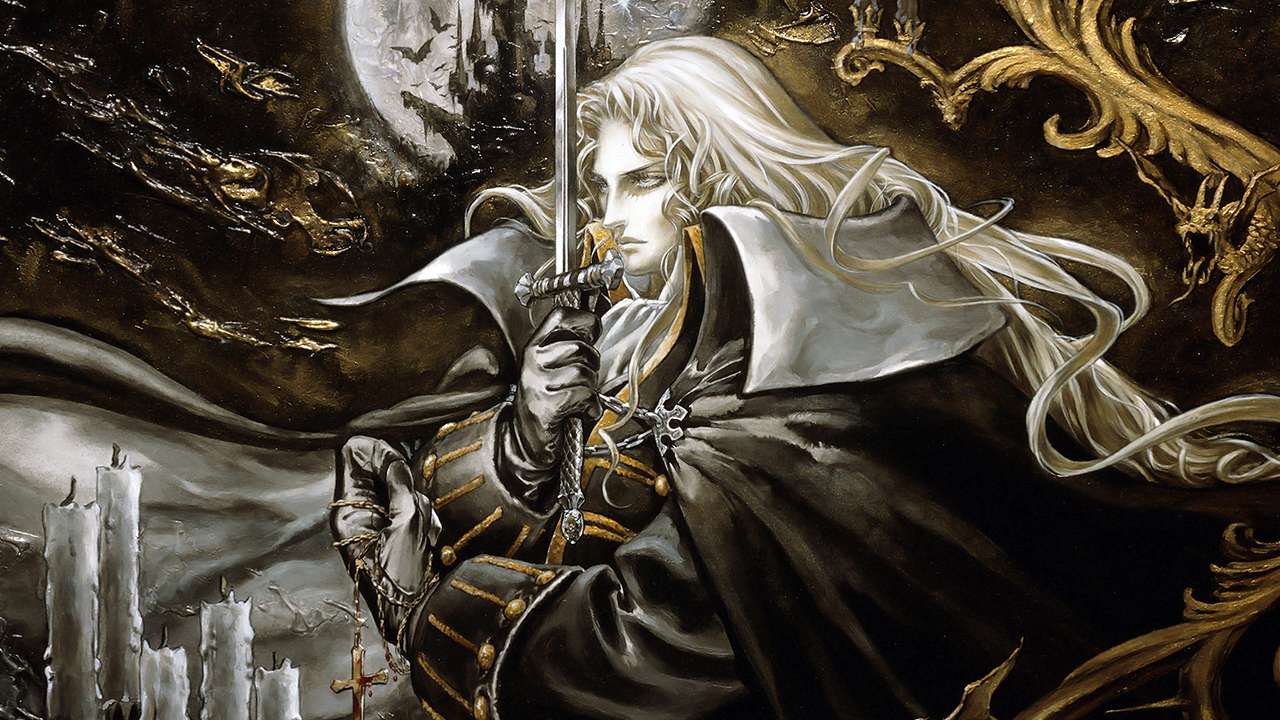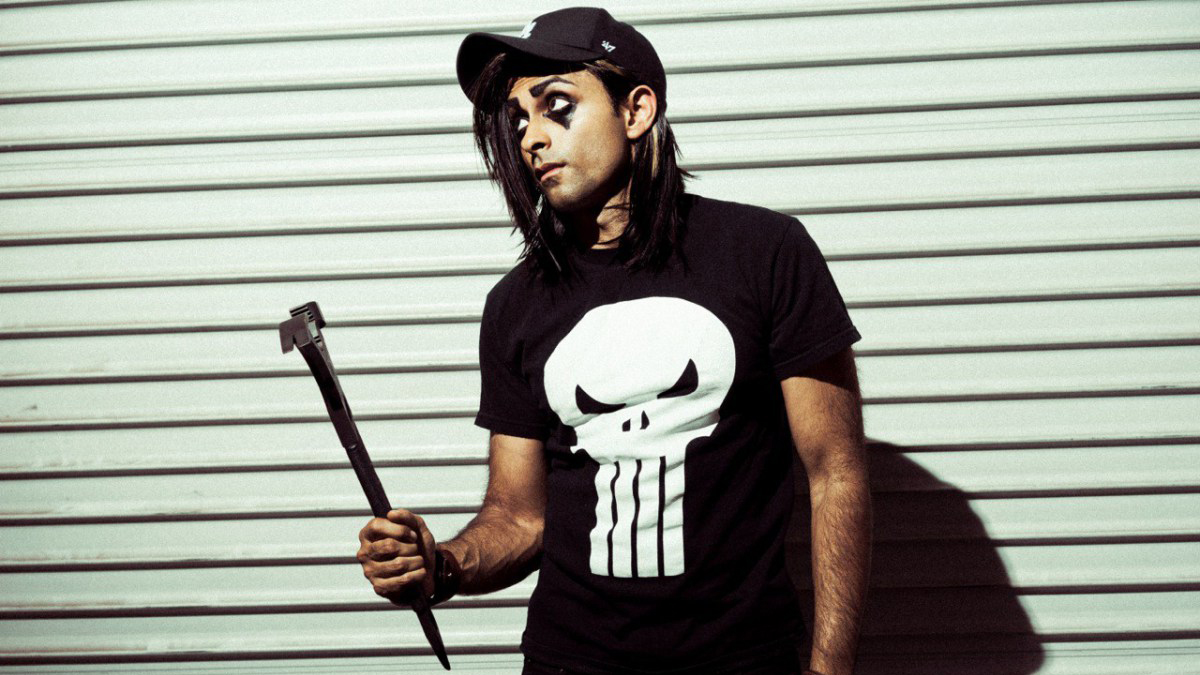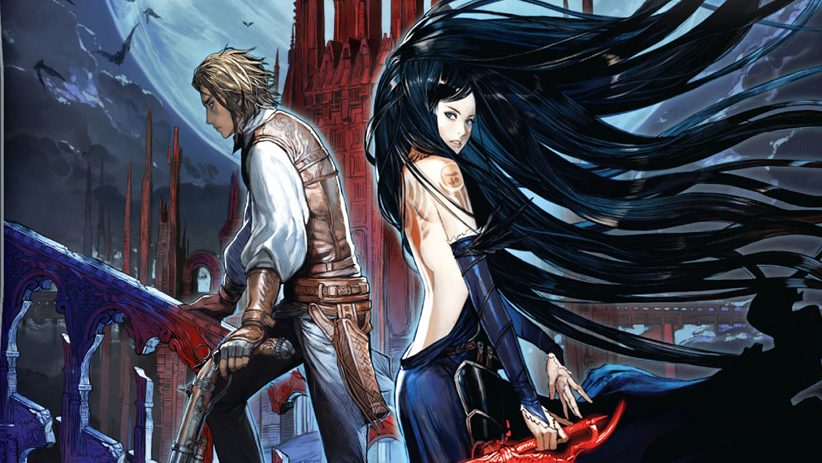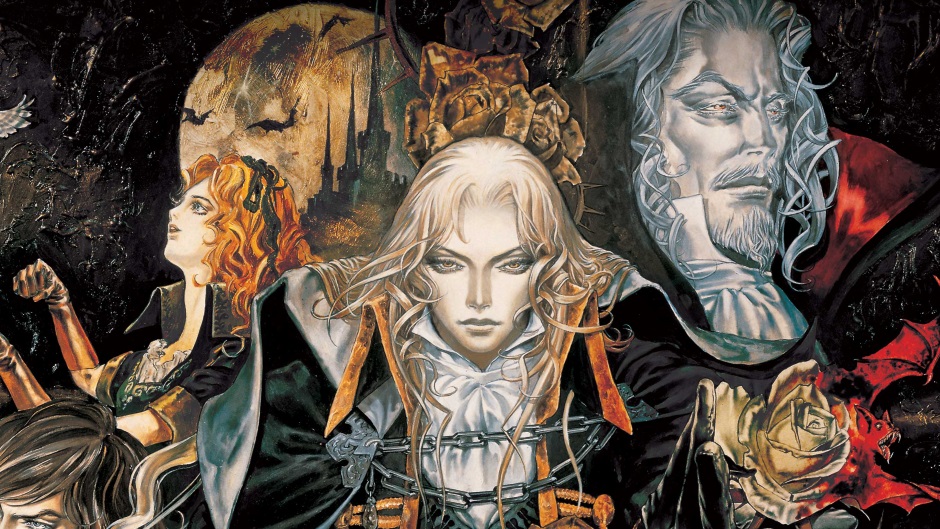It’s a sad fact that most gaming enthusiasts and connoisseurs of interactive art have been through the five stages of grief several times over when it comes to videogame adaptations. And who can blame them? I’m pretty sure we all wanted Uwe Boll to deliver compelling game-stories on the big screen. And it wasn’t for lack of desire that Assassin’s Creed amounted to little more than flashy effects, stock action, and awkward, cheeky nods to the people that made the IP a success in the first place. As a result of these and many more, expectations are low, rendering future disappointments ineffective. This is, so it would seem, where Adi Shankar comes in.
Shankar is producer on Netflix’s upcoming Castlevania miniseries, news of which circulated around the internet yesterday. My conversation with him proved to be a fascinating one, with topics ranging from how and why videogame adaptations have generally been such horrid disappointments, to his thoughts on industry trends and gaming’s general direction. He likens his Castlevania to Game of Thrones–a bold claim–and promises both violence and depth of character in plentiful abundance. In theory, it sounds like a winner.
You can decide for yourself by reading the interview in full below. I’ll admit that Adi’s zeal for bringing videogames what they deserve as an artform is refreshing; just because everyone else has given up doesn’t mean he has to. Castlevania is coming to Netflix in the very near future, so read on and keep your eyes peeled for when it drops later this year.
Game Revolution: Hey Adi, how are you? Congrats on the mini-series.
Adi Shankar: I am fantastic. Thank you so much, thank you. We’ve been working on it for a while, so, just been kind of living it for a bit, and now I guess the rest of the world is finding out.
So this is far from breaking news for yourself, it’s breaking news for the public but you’ve been in it.
Yeah man, basically we’ve been working on it since I announced it in 2015.
So I’m particularly interested in knowing how inspiration for this series comes directly from the Castlevania games themselves. And how the plot which, as you know, spans over 1000 years in Castlevania, can be condensed into this format.
Well, Which format?
The mini-series format. I assume you had to choose plots from certain games as a starting point?
Nope, nope. It actually wasn’t very difficult to that degree, because while Castlevania has a really expansive universe, it has a linear timeline.
So it was a pretty simple matter of just starting from the beginning then, as opposed to focusing on any one game
I won’t necessarily say we start in the beginning, but it starts early on.
I want to get back to your Facebook post. So we know the series is going to be very violent, and this echoes your past work as well. And yet, reports going around suggest it’s also aimed at a younger audience. Are these two things at odds, or are young audiences used to this brutality by now?
I think it depends on your definition of younger? Let’s put it this way. If you show this to a young kid – let’’s say you're a parent and you have a young kid and you show this to them, you should no longer be allowed to parent those children or that child.
So this is an animated series aimed at “younger” in the sense of 20, maybe even 30-somethings who love Castlevania.
Exactly. It’s – put it this way. If you dug Dredd, you’re gonna dig this.
.
 Castlevania's art style is very distinctive. Will its gothic nature be preserved onscreen?
Castlevania's art style is very distinctive. Will its gothic nature be preserved onscreen? .
We’re expecting an anime style. What are some of your favorite animes that you’d either like to emulate, or that resonate with you when creating something like this? On the flip side, how do you borrow from things like classic horror movies and other influences on the Castlevania games themselves?
So, I’m going to go ahead and answer that question in reverse. You know, the closest live-action comparable to this is Game of Thrones.
Wow. So that’s a bold statement – you think that feel, that violence, that visceral nature will translate–
Want another bold statement? That you can directly quote me on?
Absolutely.
This is the best fucking– this is going to be the best fucking videogame adaptation to date. It’s going to make everyone who made a videogame adaptation before this disown their projects.
*laughs*
I love it, I love it. This goes well with your remark that there’s been a “decade of propaganda,” I think that was in reference to vampire material.
What we’ve witnessed the pussification of culture, and you and I have both watched it happen. There’s been a dumbing down of– I mean, what’s cool about videogames is that as much as people want to pretend that it’s not an artform, it’s a fuckin’ artform. And you know, the fact that videogames haven’t been treated with the same level of respect as say, books, is infuriating. Because you know, I’m a gamer! I’m a gamer and I’m a comicbook reader and I’m glad finally comicbooks have been getting their due. But in terms of videogames, we’re still– videogame adaptations right now are where comicbook adaptations were in the mid 1980s. We still need our Blade moment, we still need our X-Men moment, we still need our Spider-Man moment, and we still need our Avengers moment.
I feel you on that. It is interesting because–
And I don’t mean PG-13. I do not mean PG-13. Because these videogames have a language to them. It’s actually like a language, they have a language to them. If you pick up Call of Duty and never played Call of Duty, but you played Halo, you’re gonna understand the basic mechanics. Now the buttons might have changed a little bit, the physics are a little different, but at the end of the day it’s a language. The first-person shooter is a language where if you were born in the 80s or the 90s, you watched this language grow and evolve.
I want to talk about Dracula if we could, an iconic figure in the series and even before Caslevania. Within Castlevania he often operates in the shadows, leading up to a showdown at the end, and obviously it depends on which game we’re talking about as well. What I want to know is, has your approach to Dracula been more about tempting the viewer, waiting for that big moment with dracula, that big showdown, or is it more a “get it in their face right away” approach?
Well I don’t want to go into spoilers right? You know, the show will be out there very soon, and everyone will get a glimpse of it. I think, overall, the approach here is to adapt three-dimensional characters. Other than that I really shouldn’t get into details, just to protect from spoilers. It’s all gonna come out and people will get to see it, and I don’t want to spoil. But I can talk kind of in broad strokes about why I think, you know, where I hope the videogame industry ends up going as a whole. I think VR is going to be this massive leap– I mean, I’m not saying anything everyone doesn’t already know. Gaming is such a big part of anyone’s childhood if you were born after a certain date.
Yeah, there’s a certain point where nobody has to explain to you that it’s art if you experienced certain games, whereas if you were playing Pac-Man in the arcade, that might have to be laid out for you a little more obviously.
That’s it!
.

.
The way stories are told in games, it’s like you said, it’s so elegant. Games rarely suffer from being overwritten because you can *see* the story, experience it, find objects in the environment that tell the story. Castlevania over the years has done this as well as anything. Did you feel that that was an important element of storytelling to retain as you created the series? At the same time, you obviously have to explain the story using more traditional means since this is not itself a videogame.
Well if you take a game like Overwatch, right? Overwatch is a perfect example of why videogames are this really intricate artform in terms of storytelling. When you start, you don’t really know what the story is of Overwatch, right? I mean they don’t really tell you, there’s just this little clip in the beginning. But there’s so much implied, visually, from just character design.
This is very true. So you feel that the visual presentation of Castlevania’s characters will speak volumes in a lot of ways.
I think that’s something that games do really well. Again, games have this language that you don’t really see outside of videogames, which frankly I find kind of odd.
It is odd. You were saying how videogame adaptations have been such crap. I agree with you, however, we’ve seen the language or maybe some of the finer points of games I think comes to movies and TV. I’m sure you’ve seen Dan Trachtenberg’s stuff. At the end of 10 Cloverfield Lane you feel like you’re battling the final boss.
Yeah absolutely. And you know, Dan started off making videogame fan films, so it only makes sense.
Getting back to Castlevania itself, do you have a favorite Castlevania game?
*silence* *laughs*
It’s so tough! You know, in the same way that– look, I will say this. I think Alucard, or Trevor, or one of the Belmonts, should be in Injustice 2. How sick would that be?
That would be phenomenal! Yeah. I think we’d all be for that.
Imagine seeing all the Castlevania quirks being adapted into a fighting game.
I think if someone was really committed to it, I mean, appearing in Injustice is one thing. But there’s enough variety amongst the Castlevania characters for an entire spinoff fighter itself (edit: as it turns out, this exists).
Yeah, I mean, remember Final Fantasy had a fighting game? It began with an E… like Ehrgeiz or something?
Yes, and the Persona series has fighter spinoffs, a lot of anime have fighter spinoffs, it’s really kind of a thriving niche that I think would suite Castlevania.
Yeah. Well I think the crossover fighting games to me are the the best. Like Marvel vs. Capcom. Because you’re basically learning about the cast. For me I didn’t know like 90% of the Capcom characters, like there’s a lawyer? Who’s the lawyer guy? You know, I knew Viewtiful Joe, obviously everyone knows Mega Man, or the Street Fighter people. But it draws you in, you know, “I get to play as Wolverine and Magneto, that’s fuckin’ sick!”
Right, and you play as the familiar guys and then as you encounter Phoenix Wright or whoever else, it kind of piques your interest.
I mean dude, I’m a comicbook guy, and the Marvel continuity is so impossible to follow it just kind of makes you check out different things. The first time I experience Rocket Raccoon was from playing Ultimate Marvel vs. Capcom.
Wow, really?
Yeah, he was really funny. And I thought the voice actor who did Rocket Raccoon in that game was better than Bradley Cooper.
I could see that – a lot of times the first voice you encounter is the one you get attached to.
Oh totally. Like the guy who voiced Wolverine in the X-Men animated series in the 90s? Way, way better, I would argue, than Hugh Jackman! Because he had this kind of gruff, Clint Eastwood sort of thing going on. Maybe I shouldn’t say better than Hugh Jackman, but it was definitely the voice I was more attached to.
.

.
And I mean, the beauty of animation as well, and the obvious example is Batman, you can really have this consistency of the voice roles, even over decades if you want to.
Oh totally. You’re not tied down by age, or weather, or height, or anything else.
So that brings me to the voice performances in your Castlevania series. These voices will define these characters for everybody. How do you feel about the voice performances? Do you think they’re going to resonate with people checking this out as definitive voices going forward?
I mean, we haven’t yet announced the voice cast. I don’t want to give you affirmations where I’m just literally speculating. But, since you asked, yes. The voice actors are awesome. I don’t really want to say anything until there’s a piece of paper where you can say “oh, these are the voice actors!”
Fair enough, fair enough. So obviously you had a vision for this going into it, you love videogames and how they tell stories. What was the biggest challenge in bringing Castlevania to life?
Wow. I don’t know! I really don’t know how to answer that because it’s like, my career has just been like a challenge. It’s been a challenge every step of the way because I refuse to sell out – I mean, if you look at my entire filmography I’ve been doing the exact same thing since like 2011, so that’s a long time, and in that time I’ve operated in the same zone consistently, and that’s not exactly a populist zone, and it’s not a PG-13 zone, and it’s not a family-friendly zone. I think the fact that I get to keep doing this, that’s the challenge.
So you saw this as a continuation as a very clear path you’ve set since your career began as opposed to any particular roadblocks with, say, this particular IP, or this task in a more specific way.
Well, I’m just saying that doing this type of stuff, generally- it’s weird because, obviously you’re a gamer. Obviously I’m a gamer. And we’re in the minority when it comes to the overall population of the world because gamers tend to skew younger. And it goes back to this whole idea that we were discussing earlier which is like, games are this amazing artform that have emerged before our eyes, but it’s not seen that way.
Yeah, and I think getting back to your point for earlier, growing up anytime there was a gaming adaptation my hopes would shoot up so high, and usually come crashing down. I think a lot of people have maybe not given up, but just accepted “OK, I’m going to go to games to experience games, I’m not going to go to other mediums. So hearing the confidence you have in this is exciting, and I think people are excited.
Rarely are adaptations made by people who actually play the fucking games. Right? I mean, I don’t think Uwe Boll played any of those games. If you look at the Mario Brothers movie, did they even actually play a Mario game? And the list goes on and on and on. These are people who literally looked at this brand that they could exploit, or like, I don’t know what they were thinking and frankly don’t really care. But I’m with you man, I was there in the movie theater watching the same things you were watching and having the same emotional reaction where I’m like, “dude, what is this?”
Exactly, and when you’re younger you don’t really process what you just said which is, it was a brand move, it was money on the table.
Yeah. So you know, you’re left almost in a place where you’re like OK, they adapted To Kill a Mockingbird and they did a really good job with that, and then they took the videogame I love and they completely made fun of it, so maybe this artform isn’t cool. Or as prestigious or whatever. But you know that’s just not true, and in a lot of ways videogames are a higher artform, a more evolved artform, than a lot of the established artforms.
.

.
Is it the youth of videogames as a storytelling medium that brings this, in that they haven’t been corrupted yet, or is there a chance here for this to continue, and then when things are adapted from games they’ll actually have better potential than say, normal Hollywood ideas?
Well I think a trend we have seen is this whole idea of the “blockbuster game.” You know, how you need a Call of Duty sequel every five minutes. Or we need these roster updates that you have to pay for now, or there’s a new Madden every month where we flip what the A button and B button do. There’s a level of douchebaggery that comes from the business angle of the gaming side, and I think the artists who make the games need to kind of police that. If you look at the implosion of the comicbook industry, it didn’t happen because people started writing shitty comics themselves. It happened because people were writing good comics, and then the companies went “OK we’re gonna need 15 variant covers, and we need like, 10 other Wolverine comics that aren’t very good.”
So the success actually bred some maybe less inspired results.
Yes. You know, the 80/20 rule of business can work against the whole medium. So businesses will look at artforms and say “cool, we can sell a Call of Duty game every week! Ok cool, make 15 Call of Duty games.” Dude, just make one.
I mean I was relieved when they at least added a third dev into the Call of Duty cycle so studios wouldn’t have to just crunch them out every two years.
Yeah, and I think they’re realizing this. If you look at Injustice, why is Injustice 2 so highly anticipated? Well, it’s because “Injustice 1” came out a long time ago.
It gives people time to kind of ruminate on it and get excited for the next one. I mean, I think the most ridiculous example in terms of the level of success is Grand Theft Auto V, they do not milk that series, they could milk it so much more.
Oh yeah, totally! They could have a Grand Theft Auto expansion pack every week of the year.
And actually they might overdo it too, because I think people wanted GTA V story DLC and it didn’t come.
Yeah I mean they could literally make Grand Theft Auto ice cream bars, they could have a Grand Theft Auto fighting game, a Grand Theft Auto driving game, all that sort of nonsense and they’re not doing it because, I guess the folks over at Rockstar, you have the artists protecting the artistry.
Are you telling me I don’t get Castlevania ice cream bars now?
No. We need those CM Punk ice cream bars first.
*laughs*
Getting back to the series, to close things out, I do want to ask about Netflix. It makes sense that you’d partner with them because they’ve become known for letting creators create, not being overbearing, and allowing the art to take its shape. Did you feel you had that ultimate freedom working on Castlevania?
Well, I don’t really want to get into that, it’s quite frankly boring – it opens a whole can of worms, if I just narrow it down to a sentence it’s going to be misinterpreted. But overall, they were awesome. I’ve got nothing else to say there.
I appreciate you taking the time, we’re really looking forward to the release!
Of course, it was really fun talking – I apologize for the rants, but I think they’re actually really relevant, the whole conversation. It’s not just about Castlevania, it’s about this artform we all love and how it’s not taken seriously.







